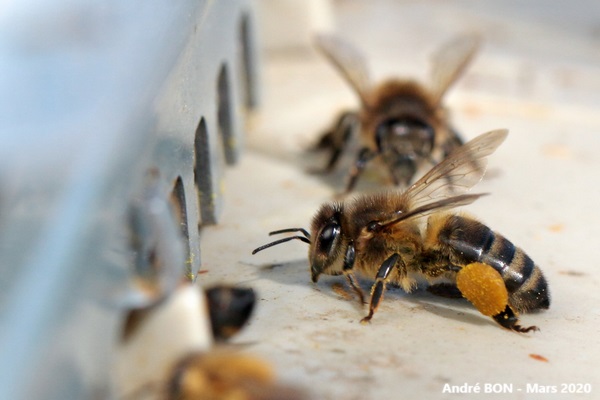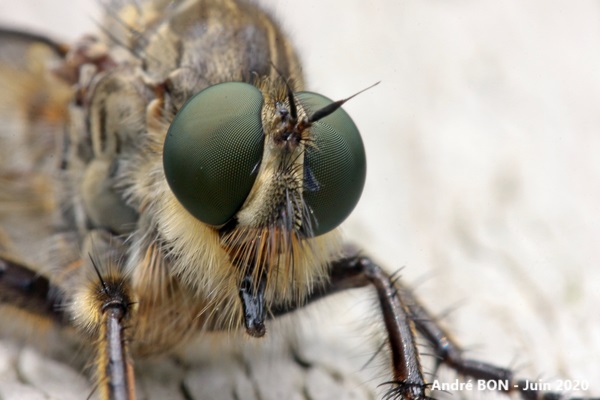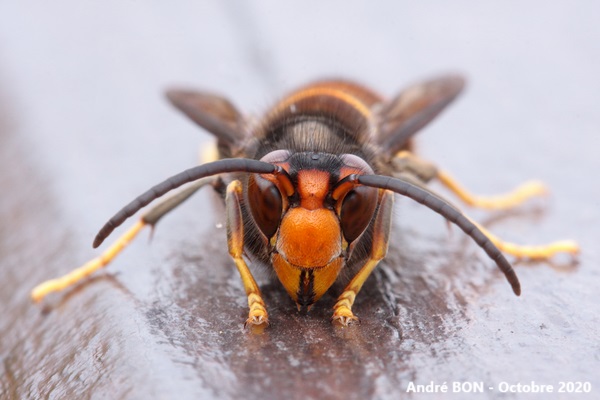Having slowed down my shooting pace, I am taking the opportunity to think about replacing my photographic equipment which is no longer at the level of what is currently available.
I will of course remain loyal to the brand to continue using my lenses but I will do as most wildlife photographers do, that is to say switch to a hybrid camera.
I will gain in autofocus, in silence and also in vibrations if I succeed in coupling it with my spotting scope.
| [Next picture] [Top] |

|
Canon EOS 40D, EF100mm f/2.8L Macro IS lens. F/9, 1/400 s, 400ASA. Focus distance: about 35cm. As an amateur beekeeper, I approached the hive's flight board to photograph the pollen coming in. As it is difficult to handle the camera with gloves I did not wear any and I had to act very quickly to avoid being stung. I then filmed the scene through my spotting scope and it is much easier because you are at a distance. The short video can be seen on the page dedicated to the Western Honey Bee. |
Robber Fly (Asilidae sp.(Latreille, 1802)) - Saône-et-Loire, France - June 28th 2020
| [Next picture] [Previous picture] [Top] |

|
Canon EOS 40D, EF100mm f/2.8L Macro IS lens, extension tubes. F/14, 1/4 s, 400ASA. Focus distance: about 10cm. The focus is in manual mode and set to the shortest distance. The subject must be completely still and not very shy. The camera is brought closer until the desired area appears sharp in the viewfinder. The camera is then held firmly against the wall where the insect is located to allow a shot with a long exposure time. Here is an example where a newer camera with much higher sensitivities would make shooting much easier. |
Yellow-legged Hornet (Vespa velutina(Lepeletier, 1836)) - Yvelines, France - October 30th 2020
| [Previous picture] [Top] |

|
Canon EOS 40D, EF100mm f/2.8L Macro IS lens. F/14, 1/8 s, 400ASA. Focus distance: about 35cm. Numbed by the cold, this Yellow-legged Hornet was close to the end of its life. |